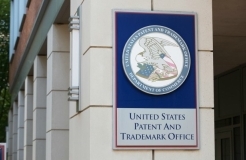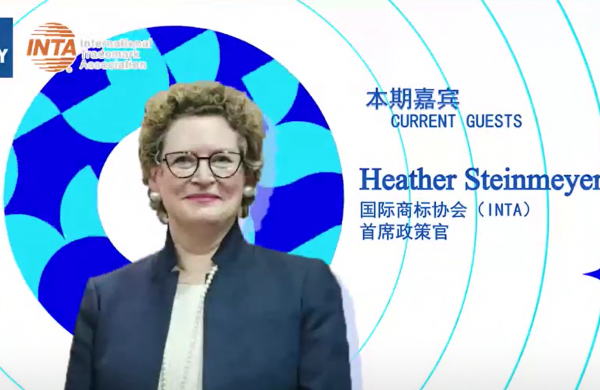Did not receive verification mail? Please confirm whether the mailbox is correct or not Re send mail

IPR Daily
- 2023-11-06 17:29:11
United States: The Patent Term Adjustment Dilemma In An Obviousness-Type Double Patenting Analysis
In In re Cellect, LLC, No. 2022-1293 (Fed. Cir. Aug. 28, 2023), the Federal Circuit held that an obviousness-type double patenting ("ODP") analysis should be based on the expiration date of a patent with any granted PTA added.
An ODP is a court created doctrine that restricts inventors from obtaining multiple patents for the same invention. See, In re Lonardo, 119 F.3d 960, 965 (Fed. Cir. 1997). This prevents them from extending their exclusivity period by obtaining a second patent that is obvious over their first patent. To overcome the ODP rejection, a patent owner can file a terminal disclaimer to disclaim any overlapping terms between the two patents. Interestingly, this case explores whether a patent term adjustment, which compensates for delays by the USPTO in granting a patent, affects the analysis of ODP. The patent term adjustment extends the patent's lifespan beyond the standard 20 years from filing. Imagine a scenario where two related patents would have expired simultaneously, but one receives a significant patent term adjustment. Can the earlier expiring patent be used to reject the later expiring patent based on double patenting? The answer is yes. Let's dive into the specific details of the case for a clearer understanding.
Cellect owns U.S. Patent Number 6,982,742 ("'742 patent"), U.S. Patent Number 6,424,369 ("'369 patent"), U.S. Patent Number 6,452,626 ("'626 patent"), and U.S. Patent Number 7,002,621 ("'621 patent"), each claiming priority back to an application that issued as U.S. Patent 6,275,255 ("the '255 patent"). All of the asserted patents are now expired. Each of these patents were granted a Patent Term Adjustment (PTA) due to delays during the prosecution process. Without the PTA, all of these patents would have expired on the same day as the original application. However, due to the PTA, they all expired on different dates.
Cellect sued Samsung for patent infringement of the above patents in the District Court of Colorado. In response, Samsung requested a reexamination of each patent, claiming they were unpatentable based on an ODP rejection. The examiner agreed with Samsung and declared the patents obvious over an earlier expired patent that did not receive a PTA. Cellect appealed to the Board, arguing that the ODP analysis should not take the PTA into account.
Cellect argued that when determining if a patent is unpatentable under ODP, only the expiration dates should be taken into account before any PTA is added to the term. According to Cellect, no ODP should be issued because all the patents in question would have expired on the same date, based on their priority claim to a single application. However, the Board disagreed with this argument, citing that the statutory text of the PTA explicitly states that a PTA cannot extend a term beyond the disclaimed date in any terminal disclaimer. Therefore, the Board concluded that a grant of PTA cannot extend the term of a patent beyond the date stated in a terminal disclaimer. Cellect appealed this decision to the Federal Circuit.
The Federal Circuit agreed with the Board, stating that the ODP analysis must consider patents with PTAs and their extended expiration dates. This ensures that the applicant does not receive an unjust extension of time. The Court also noted that Cellect could have filed a terminal disclaimer to resolve the issue, but it is now too late as all the patents have expired. Therefore, the court concluded that the Board was correct in finding the asserted claims unpatentable under ODP.
A Practice Tip: This is a good reminder for practitioners to review closely related applications in the family and file a terminal disclaimer during their prosecution, even without an ODP. In this case, Cellect missed its opportunity to file a terminal disclaimer during prosecution and it was too late during reexamination as the patents had expired.
The content of this article is intended to provide a general guide to the subject matter. Specialist advice should be sought about your specific circumstances.
Source:mondaq.com-Babak Akhlaghi
Editor: IPR Daily-Horace
- I also said the two sentence
- Also you can enter 140words
 Vaishali Udupa Resigns as USPTO Commissioner of Patents
Vaishali Udupa Resigns as USPTO Commissioner of Patents Practical Insights: In-Depth Analysis and Future Prospects in the Trademark Prosecution Field by Nana Zhang
Practical Insights: In-Depth Analysis and Future Prospects in the Trademark Prosecution Field by Nana Zhang IPR Daily Interview|INTA CPO Heather Steinmeyer on Artificial Intelligence
IPR Daily Interview|INTA CPO Heather Steinmeyer on Artificial Intelligence Heavy Blow: The AMR Imposes a Severe Fine of CNY 160,000 on Trademark Infringer
Heavy Blow: The AMR Imposes a Severe Fine of CNY 160,000 on Trademark Infringer


